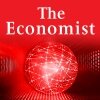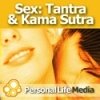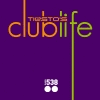Nova E = Mc2 | Pbs
Science & Medicine
To celebrate the centennial of Einstein's E = mc2, NOVA asked 10 top physicists--two Nobel Prize winners among them--how they would describe the equation to curious non-physicists. Subscribe to our podcast to hear a different physics luminary each week. NOVA is produced by WGBH in Boston. This podcast was produced by Lexi Krock and David Levin. (Author: WGBH Science Unit)
| Subscribe | Subscribe via iTunes™ |
| Author | WGBH Science Unit |
| Feed | http://www.pbs.org/wgbh/nova/rss/einstein-podcast.xml |
| Site | http://www.pbs.org/nova/rss/redir/wgbh/nova/relativity/index.html |
| Badge |

|
Recent episodes from Nova E = Mc2 | Pbs
-
Published: Oct 11, 05Frank Wilczek, Theoretical Physicist and Nobel Laureate, MIT: "Ninety-five percent of the mass of matter as we know it comes from energy."
-
Published: Oct 11, 05Frank Wilczek, Theoretical Physicist and Nobel Laureate, MIT: "Ninety-five percent of the mass of matter as we know it comes from energy."
-
Published: Oct 11, 05Frank Wilczek, Theoretical Physicist and Nobel Laureate, MIT: "Ninety-five percent of the mass of matter as we know it comes from energy."
-
Published: Oct 7, 05Lene Hau, Experimental Physicist, Harvard University: "You can get access to parts of nature you have never been able to get access to before."
-
Published: Oct 7, 05Lene Hau, Experimental Physicist, Harvard University: "You can get access to parts of nature you have never been able to get access to before."
-
Published: Oct 7, 05Lene Hau, Experimental Physicist, Harvard University: "You can get access to parts of nature you have never been able to get access to before."
-
Published: Sep 30, 05Michio Kaku, Theoretical Physicist, City University of New York: "E = mc2 is the secret of the stars."
-
Published: Sep 30, 05Michio Kaku, Theoretical Physicist, City University of New York: "E = mc2 is the secret of the stars."
-
Published: Sep 30, 05Michio Kaku, Theoretical Physicist, City University of New York: "E = mc2 is the secret of the stars."
-
Published: Sep 23, 05Neil deGrasse Tyson, Astrophysicist, American Museum of Natural History: "It's something that doesn't happen in your kitchen or in everyday life."
-
Published: Sep 23, 05Neil deGrasse Tyson, Astrophysicist, American Museum of Natural History: "It's something that doesn't happen in your kitchen or in everyday life."
-
Published: Sep 23, 05Neil deGrasse Tyson, Astrophysicist, American Museum of Natural History: "It's something that doesn't happen in your kitchen or in everyday life."
-
Published: Sep 16, 05Tim Halpin-Healy, Theoretical Physicist, Barnard College, Columbia University: "Moving clocks run slow, moving meter sticks are shortened -- how does that happen?"
-
Published: Sep 16, 05Tim Halpin-Healy, Theoretical Physicist, Barnard College, Columbia University: "Moving clocks run slow, moving meter sticks are shortened -- how does that happen?"
-
Published: Sep 16, 05Tim Halpin-Healy, Theoretical Physicist, Barnard College, Columbia University: "Moving clocks run slow, moving meter sticks are shortened -- how does that happen?"
Advertisement
Popular Podcasts
-
Music
-
Health
-
Sports & Recreation
-
News
-
Health
-
Music
-
Sports & Recreation
-
Music














